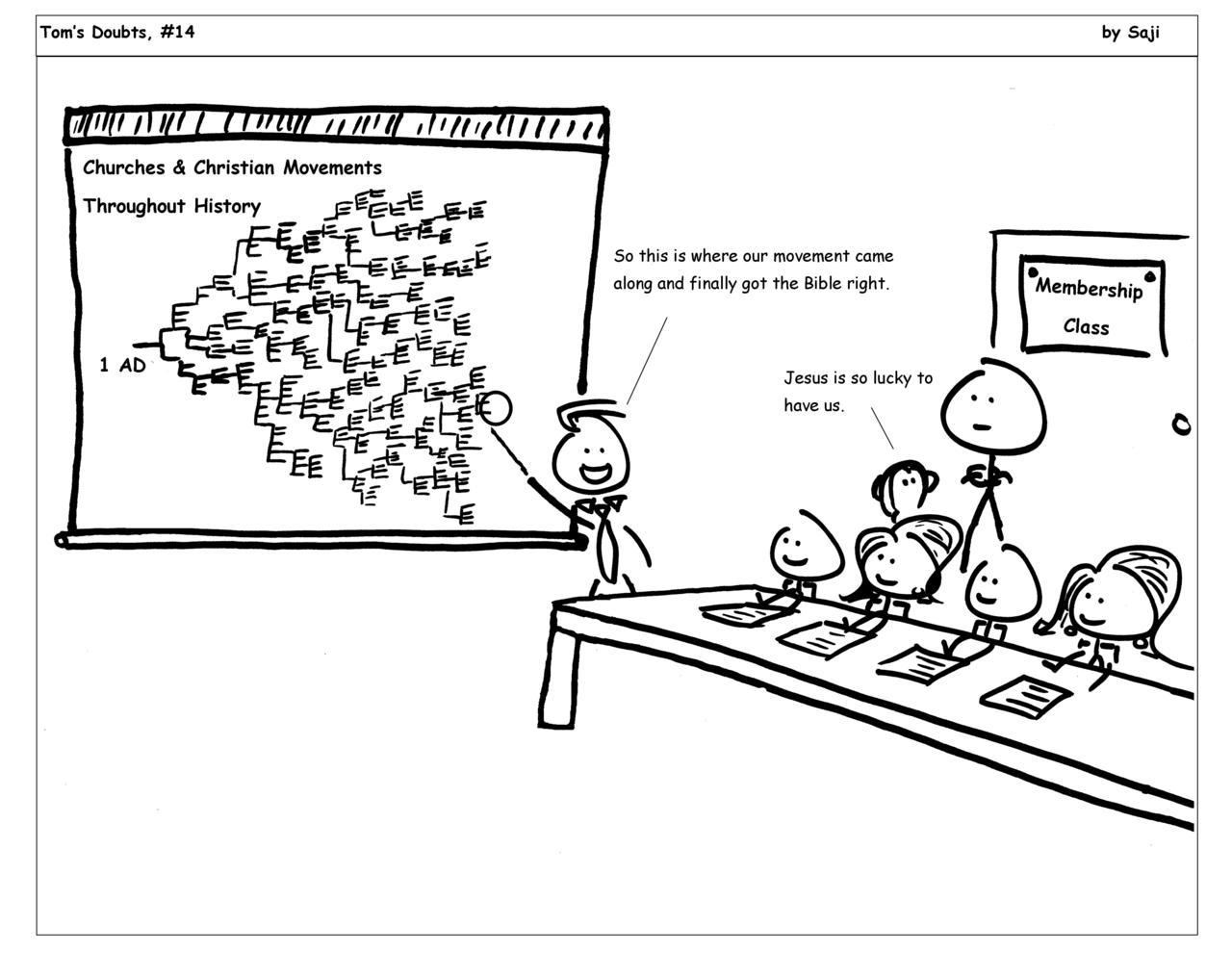People use the term 'church' in various ways. When I speak of church I try to refer to Christ followers in the plural. Period. The New Testament church seems to be whenever 2 or more believers assemble together.
To clarify what church means to me, I'll share some recent examples I've had with believers gathering together.
1) Every day I gather with my wife and two children. We gather around meals. We pray. Some days we read the the Bible together. Some days we sing. We discuss each others questions about God, life, and how we should live. We encourage each other to become more like Christ. These church activities rank high in my priorities at our current stage in life.
2) Our family has gotten together with two families that have come from a background of being employed by institutional 'churches' and now find themselves seeking to follow God outside those walls. We eat together. We share stories together. We help each other honestly and openly wrestle with issues we don't understand. We encourage each other. We have shared Scripture with each other. We have watched videos together. We may even sing together next time we get together. We have only gotten together a few times, but I pray our gatherings encourage each of us to become more like Christ.
3) We get together with my wife's parents regularly. They are an encouragement to us. They are examples for our family as they have dedicated their lives to sharing Jesus with others, specifically people with Muslim backgrounds. We eat together. Pray together. Share life together, and hopefully encourage each other to become more like Christ.
4) Through facebook I sort of get together with a group who is reading through the New Testament this year. Each day we read a chapter on our own, and share our thoughts with each other through a private facebook page. We are only a few weeks in, but I am encouraged by how these reading speak to each of us, and we can teach one another as each of us are being taught by God as we read the Scriptures.
5) Some other internet activities may count as well. I have watched some videos where Christ followers have shared their experiences and understanding of God. I have read some articles, and listened to podcasts. I have interacted with some Christians through emails, blogs, twitter, facebook, and more.
6) I get together with different Christ followers at my workplace, and in my carpool to work. There are a few in particular that often engage in spiritual conversations with me. We share the highs and lows of our spiritual journey, and life in general. I pray whenever I get together with other Christ followers we can encourage each other to become more like Christ - even at work.
7) I get together with lots of Christ followers most Sundays. There is a 'Sunday School' time where we typically watch a movie and have some conversations about the topic. There is a singing time. There is a sermon. There is some time between where we can talk with other Christ followers and be an encouragement to each other.
8) We have gotten together with other Christ followers this month as well. It is hard to list them all. We have been in a few people's homes, and have had a few people in our home. It has been really cold this month, so we haven't done much outdoors. But in warmer months we get together with believers outdoors as well. Tonight we are having a few families over to eat pizza and watch a hockey game. I pray we can encourage each other to become more like Christ.
I've likely missed something.
I would encourage you to think about the different activities or interactions you have with Christ's church.
I'd also encourage you to consider your purpose with getting together with other believers. In Scripture we see different activities occurring when the church assembled. What activities are of most value to you at your stage of growth? What activities are of value for the others you are gathering with?
Hebrews 10:23-25 (NIV)
"Let us hold unswervingly to the hope we profess, for he who promised is faithful. And let us consider how we may spur one another on toward love and good deeds. Let us not give up meeting together, as some are in the habit of doing, but let us encourage one another and all the more as you see the Day approaching. "
Note: These instructions for meeting together are sandwiched between two 'one another' commands. May we be mindful of the relational interactions when we gather as well.
Related Posts:



